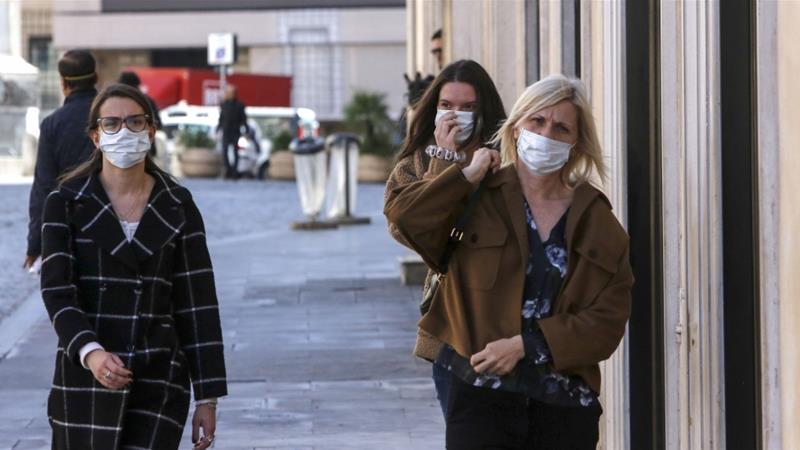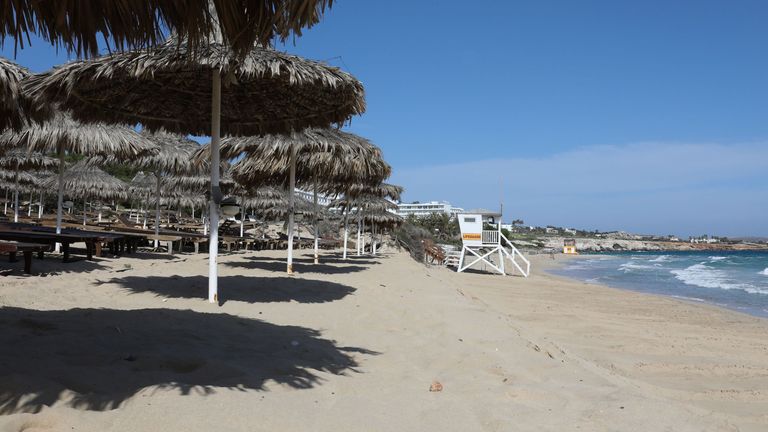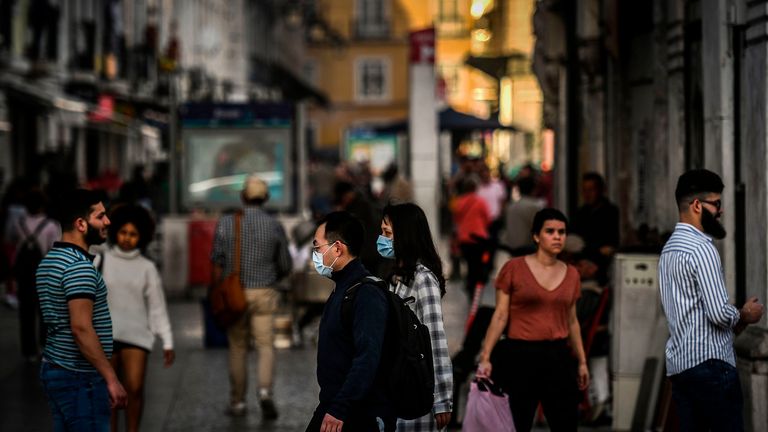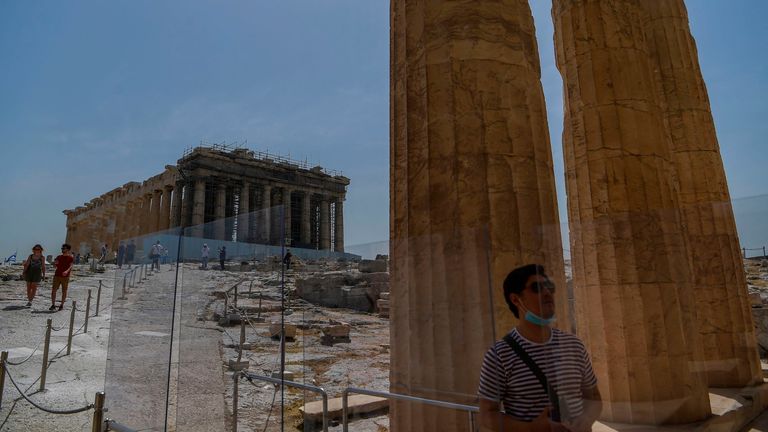
Europe Consider New Ways to Welcome Tourists Safely Amidst Pandemic
Sunbathing on a packed beach is off the cards this summer, as the future of European travel is set to adapt to some changes.
Countries across Europe are trying to figure out ways to entice tourists to come back despite coronavirus remaining a threat.
Europe was at one point the epicentre of the COVID-19 outbreak, with more than 1.3 million cases and 156,000 recorded deaths across the continent.
But in places where tourism accounts for much of the economy, officials are considering changes to how hotels, resorts and nightclubs can operate under the world’s new way of life.
Here are some of the countries making new tourism rules…
Cyprus

The Mediterranean island of Cyprus is considering asking tourists to take a COVID-19 test prior to their arrival.
Travellers could also be asked to disinfect their luggage and reception desks may be put behind screens, while cleaning staff could be dressed in full protective gear.
The island’s deputy minister for tourism, Savvas Perdios, said south Cyprus will look to bring tourists from nearby countries that have controlled the virus well, including Greece, Israel and the United Arab Emirates.
Portugal

Southern European tourist hotspot Portugal will likely award hotels a “Clean&Safe” seal to help tourists safely choose accommodation.
The seal will indicate that the establishment, be it a hotel, restaurant or other venue, has enacted recommended hygiene and safety procedures to protect against the virus.
Other changes being adopted include hotel guests not being able to check in to their rooms until 24 hours after the last occupant has checked out, allowing time for thorough cleaning and airing of the space.
Some hotel guests may get exclusive use of their own sunbed and buffets are unlikely to be offered, though room service is expected to thrive.
And on the beach, sunbathers will be told to stay 1.5 metres apart with umbrellas at least three metres apart.
There will also be new signs and an app using a traffic light system of red, yellow and green indicating which beaches are full, partly full, or have few people. Paddle boats and water slides will be completely prohibited.
The Portuguese government said hotels intend to start opening from 1 June, but discos will be the last places to open.
Greece

Direct flights to Greece from the UK are due to resume on 1 June, with some domestic flights and ferries operating.
Travel to Evia and Crete from the mainland will be permitted, while all other islands are restricted, and all arrivals must self-isolate for 14 days.

